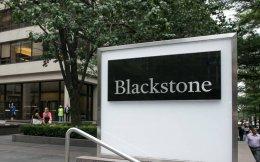M&A deal value slipped by two-thirds during 2011 even though the volume remained resilient. While deal value fell 35 per cent to $40 billion (as compared to $61 billion in 2010), deal volume slipped only 5 per cent to 732. The January-March quarter accounted for more than half of the annual deal value, with 198 transactions worth $22.1 billion. Incidentally, M&A transactions during 2011 had been dominated by commodities, especially energy assets. Three of the five largest transactions were in energy-related businesses while two deals involved multinationals consolidating their Indian holdings.
British Petroleum-RIL: The year’s largest M&A deal came early in February when Reliance Industries Ltd sold 30 per cent stake in 23 oil and gas production sharing contracts that it operates in India (including the KG D6 block) to British Petroleum (BP) for $7.2 billion. It is one of the biggest ever inbound transactions in India. The two also formed an equal-equity joint venture for sourcing and marketing of gas in the country.
The deal enables RIL to access BP’s exploration know-how while the latter gets exposure to the fast-growing Indian market. According to BP’s Energy Outlook 2030, energy consumption in India has grown 190 per cent over the past 20 years and is likely to grow 115 per cent over the next 20 years, a growth rate of over 4 per cent per annum.
Vodafone-Essar Group: In what marked the end of a troubled cross-border corporate marriage, UK-headquartered Vodafone Group Plc. bought 33 per cent stake in its Indian joint venture Vodafone Essar Ltd and paid $5 billion to the Essar Group led by the Ruias. Vodafone will own around 75 per cent stake in the Indian telecom venture, just marginally above the 74 per cent mark which is the maximum that a foreign investor can own in an Indian telecom firm as per the existing foreign direct investment (FDI) norms. Recently, Piramal Healthcare, the Ajay Piramal Group firm that sold its domestic formulations business to Abbott for $3.7 billion, also picked up stake in Vodafone.
Vodafone had acquired 67 per cent (direct and indirect) stake in Hutchison Essar for $11.1 billion four years ago in the biggest inbound acquisition deal ever. This deal valued the company at around $16.6 billion, which means Vodafone has lost value in the Indian arm during the past three years, as per its latest deal value.
MPSEZ-Abbot Point Port: Adani Group-owned Mundra Port and Special Economic Zone (MPSEZ) acquired Abbot Point Port in Australia in an all-cash deal for A$1.8 billion (around $2 billion or Rs 9,000 crore approximately). The transaction came after the group acquired a coal asset of Linc Energy Ltd (LNC) for about $2.7 billion (Rs 12,500 crore approx.) in August 2010, gaining control of the Galilee tenement in Queensland and expanding its empire Down Under.
MPSEZ emerged as a successful bidder for the 99 year lease of Abbot Point X 50 Coal Terminal (APCT), following the international competitive bidding by the State of Queensland in Australia. This acquisition also marked the beginning of expansion of MPSEZ outside the country.
Siemens consolidation: German engineering giant Siemens AG consolidated its holding in the Indian arm, increasing its shareholding in listed Siemens Ltd from 55 per cent to about 75 per cent. The company forked out $1.4 billion for the stake hike, made at 30 per cent premium to the then trading price. Siemens operates 17 companies in India and provides direct employment to over 18,000 people across sectors like industrials, energy and healthcare. The group also set up a non-banking financial company with an initial investment of $50 million for its foray into financial services.
Essar Energy-Stanlow Refinery (Royal Dutch Shell): London-listed Essar Energy acquired UK’s Stanlow oil refinery from Royal Dutch Shell for $1.26 billion. Stanlow refinery, located in the north-west of England, is the second largest refinery in the UK, with a capacity of 296,000 barrels a day. It supplies about one-sixth of the UK’s petrol requirements and is also a key manufacturer of diesel and aircraft fuel. The deal gives Essar direct access to the UK market and enables it to export fuel products from its refinery at Vadinar in Gujarat.






